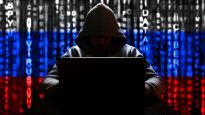Public people against sociopaths or “Do Internet users have the right to choose?”
03.01.13
Law enforcement agencies add fuel to the fire of debate against anonymity. Thus, the Ministry of Internal Affairs of Ukraine advocated limiting the anonymity of users on the Internet in general and in social networks in particular. “The main reason for the widespread development of cybercrime is anonymity, because it provokes impunity. Therefore, it needs to be eradicated,” said Maxim Litvinov, head of the Department for Combating Cybercrime of the Ministry of Internal Affairs. In his opinion, a compromise option could be the adoption of a law on the sale of SIM cards for subscriber identification. Thus, user identification will be possible without entering passport data.
This scenario is a bit reminiscent of the immortal creation of George Orwell “1984” and his “big brother”. In addition, the law on the protection of personal data has not been repealed. Although, on the other hand, this may actually contribute to solving crimes. To understand in this case what is good and what is bad seems like a very difficult task…
Most users are informationally open:
- According to the research center PEW (pewresearch.org):
- A third say their email address, home address, phone number and employer information are available online.
- 25-35% say they don’t know if such information about them is available online.
- 82% – Most of them are adults who keep their online profiles in the public domain and don’t care. Of these:
- about 60% say their profile is visible to everyone who views it;
- about 40% say their profile is only available to friends.
Is it worth sharing?
Mark Zuckerberg, having made a fortune from the desire of people to talk about themselves, of course, commercially correctly proclaims his point of view: “You are a single person. If you are two-personal, then this indicates that you lack integrity.” According to the creator of Facebook, having more than one identification indicates that a person is cowardly and refuses to reveal his identity, neglecting the opportunity to express himself. Of course, a single account with authentic data has its undeniable advantages: it forces civil liability for the point of view expressed on the Internet, associates the content creator with the content itself, promotes the user’s self-promotion as an expert, etc.
Openness, as social psychologists say, contributes to the construction of a civil society in which one can and should defend one’s position. As an example, various protests, rallies and other acts of identifying civil will, which arose through communication through social networks, are given. Also, various charitable events (carried out individually or jointly) inspire more trust if they are carried out openly with access to the contacts of responsible persons.
Nevertheless, it is worth agreeing that the matter is not only and not so much in the psychological aspect of openness, but in the availability of data about a particular person. On social networks, a user can be easily found by his personal E-mail, if he has not changed the default privacy settings. Google will probably find it based on the photo, and various databases with personal information that are supposedly closed may even have an identification code and passport data. The point is not so much that all this data is collected and available, but that it is available anonymously. Just some 5-6 years ago, in order, for example, to rob an apartment, you had to walk around the house, sniff around, and probably catch the eye of your neighbors, perhaps leave your data in some official requests (for example , at the address office). Now it’s enough to anonymously Google and search for data on social networks. One can, of course, argue that no one will use such data for bad deeds, but who said that there are few dishonest and bad people on the Internet? Everything is just like in real life, since broadband access became available to almost everyone.

Mark Zuckerberg: “People now enjoy giving away information more, being more open with more people… Social norms change over time.”
Ultimately, open information in itself cannot cause harm. Much depends on the caution of the user himself and the degree of confidentiality of his information. The user is free to choose, using privacy settings, what information he will make available to everyone and what information he will leave confidential. Therefore, it is worth reminding once again that it is better to be safe than sorry when providing personal information and posting your own photographs. We wrote about the basic rules of conduct on social networks in one of our publications (see hi–Tech PRO 11/2010, p. 193).
Freedom of choice
Many spears have been broken in the debate over anonymity. The principle of openness has quite a few admirers, while anonymity arouses natural suspicion and the question “Do you have something to hide?” On this topic, well-known precedents of trolling are recalled (see hi–Tech PRO 11/2008, p. 90) – the story of Jason Fortune, who remained unpunished (en.wikipedia.org/wiki/Jason_Fortuny) and the suicide of schoolgirl Megan Meyer. And this happened before the heyday of the era of social networks, i.e. today the field of activity has become much wider.
Nevertheless, anonymity cannot but have undeniably positive aspects. Thus, a well-known Internet figure, founder of the sites 4chan.org and canv.as, Christopher Poole (better known under the pseudonym moot), states: “I think anonymity is a kind of authenticity that allows you to post content in a completely open and unfiltered, t i.e. cheese, form. I really think this opportunity is invaluable.”

Christopher Poole: “An acquaintance of mine once told me: “The happiness of a teenager lies in the fact that he can be forgotten and forgiven.” As a child, you can say a lot of stupid things, and no one will remember you, say, at 30 years old, those words that you said when you were eight years old. On the Internet, most social networks try to personalize their members as much as possible, sacrificing the immaturity of their judgment. What you said or did will be available on the Internet in 10 years. And this, in my opinion, is very regrettable.”
At last year’s exhibition SXSW (South by Southwest Music and Media Conference, sxsw.com) Christopher Poole, during a discussion about anonymity, expressed the opinion that a user speaking openly has to time to reconsider your own point of view on what was previously expressed, since emotional and personalized arguments with a shift to personalities are often used. Impersonal participation in discussions allows you to express completely different opinions without consequences, have a craving for experiments, hiding behind creativity, and such participation can also inspire the posting of genuine content. In addition, attention is drawn primarily to the content itself, and not to the user who posts it. This again allows the information to be perceived as impersonal. Also, with an anonymous discussion, the collective opinion is much stronger and the answers to opinion polls will be more truthful, and it can also be easier to protect informants who need it. It is not for nothing that Christopher Poole argues that the cost of exposure is too high if you introduce yourself.
Balancing the openness of your own life on the Internet is, of course, a rather personal question. But the main thing I would like to wish for everyone is the opportunity to make an informed choice when such a case presents itself, and to understand all the possible consequences of the chosen position.
Attitudes of online users towards privacy:
- 43.5% – calm and inactive. Do not worry about personal information and do not limit the amount of information about yourself that can be found online.
- 21.0% – worried and cautious. They are afraid of the amount of personal information that can be found online and prudently limit access to it.
- 18.5% are afraid of alienation. They worry about how much information is available about them, but they do not limit the amount.
- 17.0% are brave inventors. Do not worry about personal information online and actively download content, but try to limit the amount of personal information.
- However, 70% of Facebook users rate their own level of concern about privacy when using the site from “Slightly” to “Extremely.”
Editor
Don't miss interesting news
Subscribe to our channels and read announcements of high-tech news, tes
Oppo A6 Pro smartphone review: ambitious

Creating new mid-range smartphones is no easy task. Manufacturers have to balance performance, camera capabilities, displays, and the overall cost impact of each component. How the new Oppo A6 Pro balances these factors is discussed in our review.
Poco M8 Pro smartphone review: give us more

Poco M8 Pro 5G immediately catches the eye with its size and the manufacturer’s desire to offer more than you’d typically expect from a device in this price range. It’s not just another mid-range device.
China bans electric cars with hidden door handles blocking car china electric transport
China is introducing a new safety standard for cars that bans hidden door handles. The standard will come into effect on January 1, 2027.
SpaceX bought xAI Elon Musk became the first person in the world with over $850 billion business Elon Musk SpaceX
After the merger, SpaceX is valued at $1 trillion, xAI at $250 billion, and Musk’s share in the combined structure is 43%, which is valued at $542 billion.






